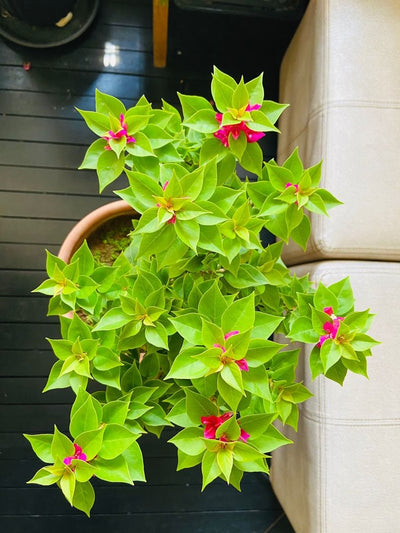Bolting in plants and its control
Bolting refers to a vegetable plant's sudden growth of a flower stalk. Seed formation follows the flowers and the desired growth of the vegetable stops. Bolting is a natural process in plants, in which plants reproduce by forming seeds, fewer and skinnier leaves rather than producing leaves and bigger roots which for a gardener is quite dismaying .
Symptoms of bolting –
Generally, when a plant starts to bolt, it usually start having a poor harvest also an indication that plant will decline in flavor. Lately the plants become too tough and become rot.

Cause of bolting –
- Increased day length is one of the most prominent cause of bolting, this problem occurs when you plant the seeds too late.
- Bolting caused by root stress happens when we disturb the plant’s root system by transplanting or the container is too small in size for your plant.
- As the temperature of soil increases in summer, plants become triggered to begin seed and flower production.
- Plant which are large in size are more prone to bolting when cold temperature strikes.
Control for bolting –
- Plants like carrot, turnip are most prone to bolting due to root stress try to plant them with seeds rather than transplanting.
- Try to use bolt resistant seeds as they are specifically developed to resist bolting.
- Prevent soil from over-heating by spreading a layer of mulch on you topsoil to keep it moist and cool.
- Use fertilizer with high nitrogen content as they promote leaf growth.

More from:
bolting in plants




Leave a comment